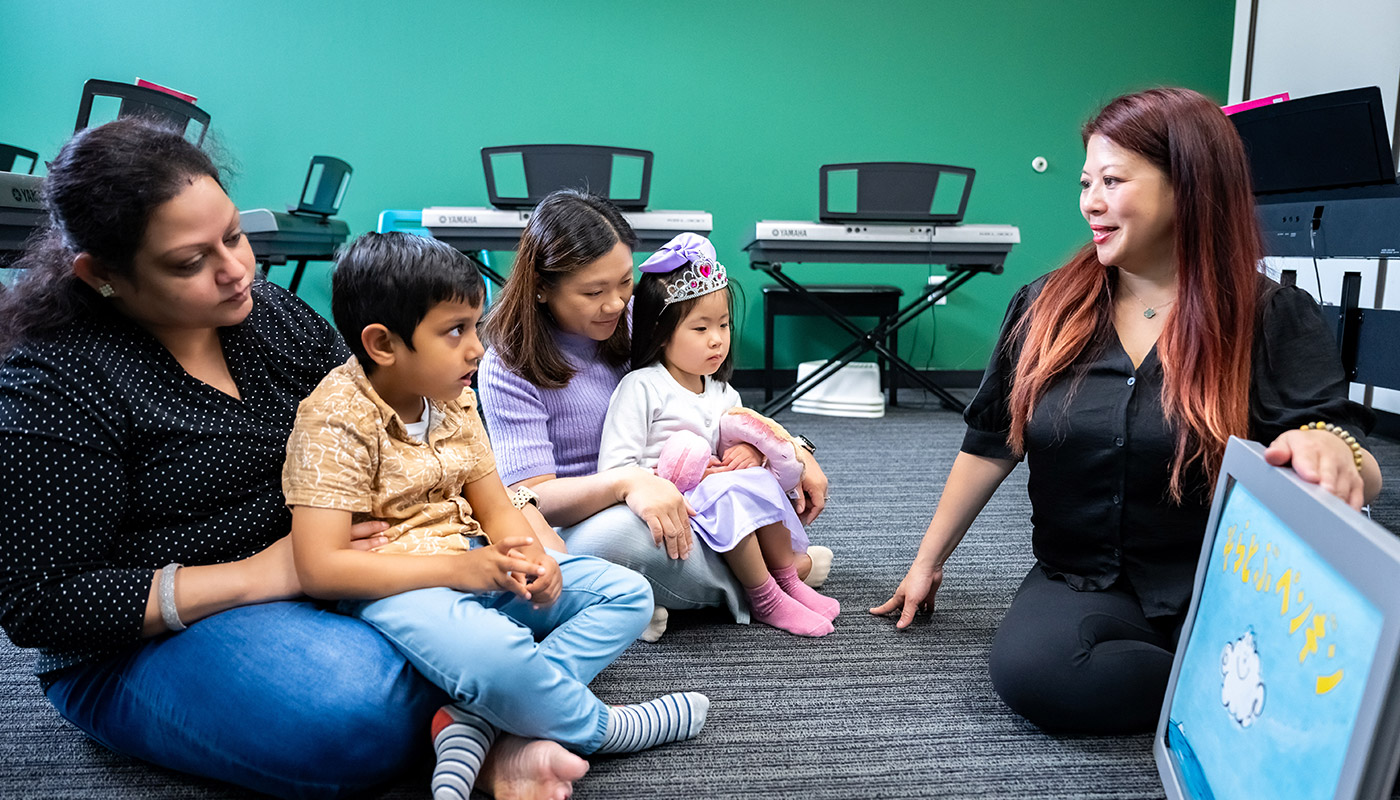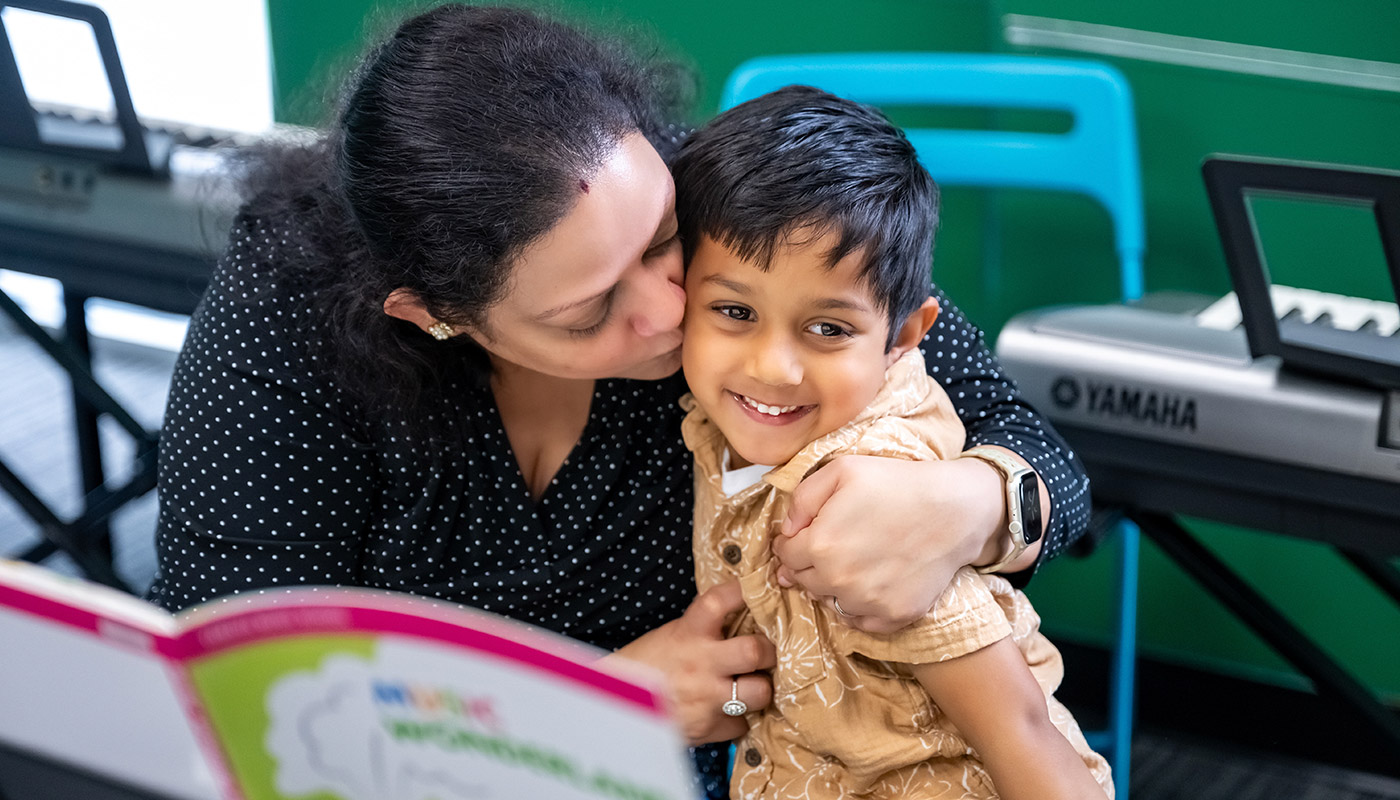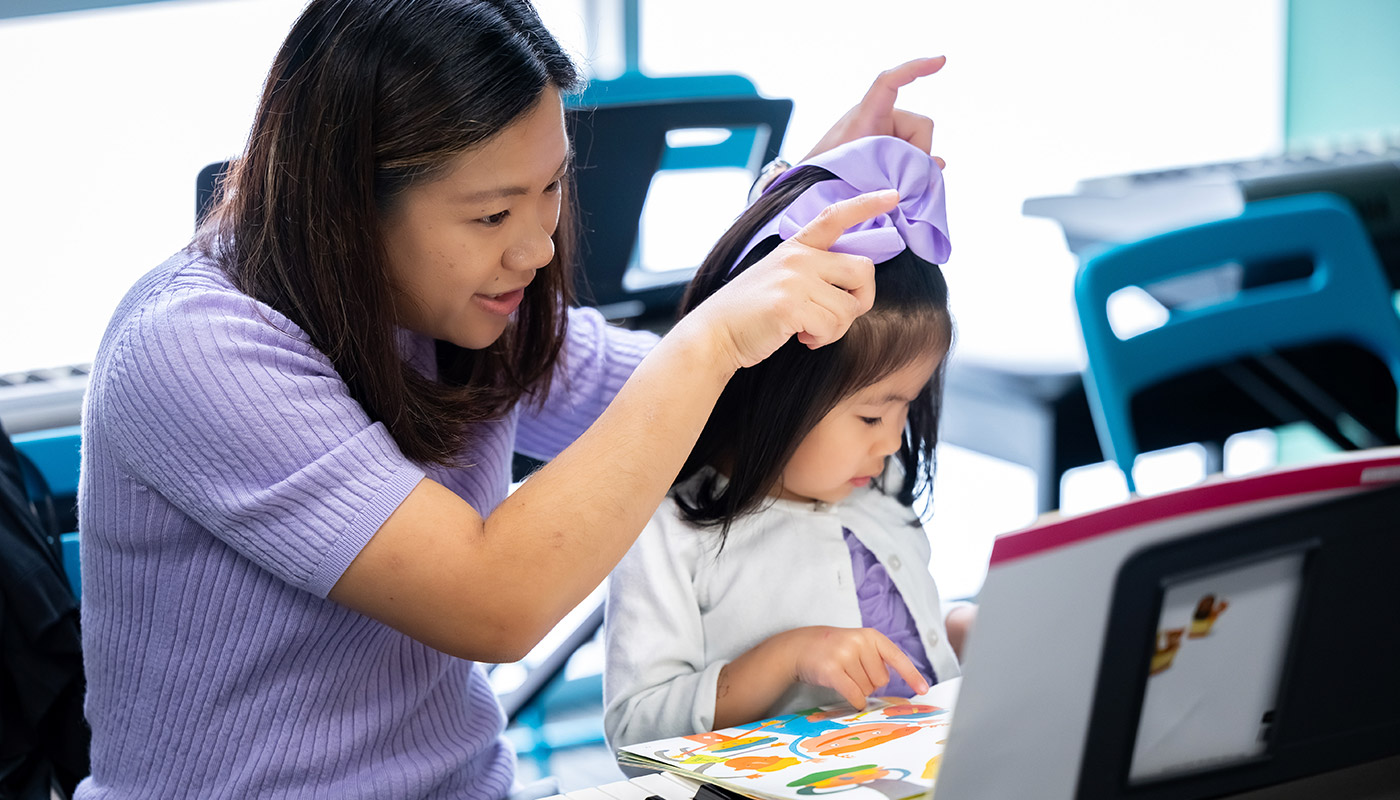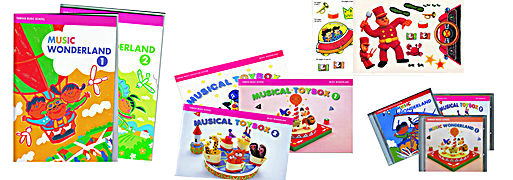


Spark a Love of Music
Playful Parent & Child Keyboard Classes!
Music Wonderland
Our preschool piano classes are a vibrant musical adventure designed specifically for 3 1/2 to 5 years old and their parent. We learn through playful movement, singing, rhythm games, and hands-on keyboard exploration.
- ✔ Parent-Child Bonding: Your active participation creates security, boosts confidence, and makes musical learning deeply meaningful.
- ✔ Movement-Based Magic: We tap into natural energy! Clapping, dancing, and marching transform abstract concepts into embodied understanding.
- ✔ Ears First, Eyes Later: We cultivate a keen musical ear—recognizing pitch, rhythm, and melody—the essentials for all future music study.
- ✔ Real Foundations, Real Fun: Preschoolers gain focus and concentration through listening, fundamental keyboard geography, and basic rhythm skills.

What is “Music Wonderland”?
Music Wonderland is the first year of the renowned Junior Music Course. It provides a wonderful introduction to music for young children and an enjoyable togetherness activity with parents.
A child’s character develops rapidly at the ages of 3 and 4.
The goal is to nurture this development through the enjoyment of music with parents and with new friends. Many styles of music are introduced in the lessons.
Children learn music through a very natural approach.
Music Wonderland begins with a focus on developing listening skills. The children are taught to listen and react to music with body movement and on the keyboard. The expressiveness of the music helps them to learn the concepts of strong/weak, fast/slow, smooth/bouncy, etc.
Having fun in music class leads to a life-long enjoyment of music.
Students are encouraged eve at this young age, to express themselves through music. They do this first through singing and moving in time to the rhythm. This is a most basic way to develop the sense of beat or pulse.
Children enjoy making music in a group with their parents and their new friends.
Musi Wonderland enhances social development. The group classes promote teamwork and a sense of accomplishment as the students and parents successfully make music together.
Music Wonderland teaches children to be expressive.
Yamaha believes that all children should be encouraged to play the music of others- and all children should be encouraged to create their own music to express their emotions. This philosophy is a cornerstone of Music Wonderland and the rest of the Junior Music Course.
Frequently Asked Questions
How is Yamaha Different from Piano Lessons?
The Yamaha curriculum is broad compared to traditional private piano lessons. Children sing solfège, play the keyboard, sing songs with lyrics, move to music, play rhythm and keyboard ensembles and participate in music appreciation activities. They develop diverse musical skills without prematurely focusing on one instrument or style. This approach allows students to choose their future musical path when they are more physically and mentally mature. Yamaha students are often leaders in school orchestra, band, and choir programs.
Will My Child Learn to Play the Piano or Keyboard?
Yes! A keyboard or piano is required. Children enjoy playing the keyboard and can become excellent pianists with Yamaha’s holistic approach.
Are Student’s Required to Practice?
Yes. Students receive ‘homework’ to reinforce the classroom activities. This serves as a guide for parents as they begin to integrate fun, active music-making into the daily life of the family. We provide our parents with training, workshops and tools to support their time outside of the classroom.
How Do I Know If My Child Is Ready For Music Lessons?
We believe that all children can learn and are ready to begin music training at a young age with the correct approach and philosophy. We offer a free preview class to assess musical readiness.
Should Parents Have a Musical Background?
No. You learn with your child during weekly lesson.
What is the Tuition?
7 Notes offers payment plan by semester, 5 payment plans and yearly payments in full. A full schedule of options are made available during the preview class.
How Many Children Are in the Class?
Classes are typically taught to groups of 10-12 children. This format motivates children and provides an opportunity to develop ensemble skills and cooperation within a supportive community of friends and parents.
What is the Parent’s Role?
Parental attendance facilitates accelerated growth. The parent/child partnership is active, not passive. Each partnership develops into a mini-ensemble, where co-learning, co-practicing and co-discovering can be enjoyed in class and at home.
Why Group Lessons?
Students of all ages learn better in groups due to the following factors:
Peer Influence: In a group there is peer motivation such that a student will want to perform well in front of and with his/her peers. The experience of performing in front of a friendly audience on a regular and frequent basis will give the student confidence and a feeling of accomplishment.
Comprehensive learning: Group lessons are a very effective way to achieve comprehensive musical training. In a group a student can sing with others and perform in various kinds of ensembles.
It takes the pressure off: In a group, pressure is not constantly on one individual. As a result, music skills can be nurtured in a relaxed and friendly environment conducive to learning
Why use Keyboard Instruments?
The use of the keyboard as a learning tool is one characteristic of the Yamaha Music Education System. Keyboards offer the following advantages:
Pitch Accuracy: When a key is pressed, it produces the correct sound
All Musical Elements: Students can play melody, rhythm, and harmony on one instrument
Visible and touchable: On a keyboard, notes are easy to find and play
Range: Sounds in all ranges (high and low) are easy to produce
How is Yamaha Different from Other Programs?
Teachers: Our faculty has a genuine commitment to teaching beginning musicians and are certified by Yamaha through extensive training at Yamaha Corporation of America and exams.
Fun and Rewarding: Students can have fun and achieve a high level of music proficiency
Play: Performance opportunities are available in a wide variety of settings, from recitals to national or international concerts
Curriculum: Materials include books, CD’s, DVD’s and other materials that combine decades of experience with the most recent research in music education
International History: We are part of a vibrant international network of Yamaha education centers in over 40 countries. More than 6 million students over 50 years have learned to play using the Yamaha method

